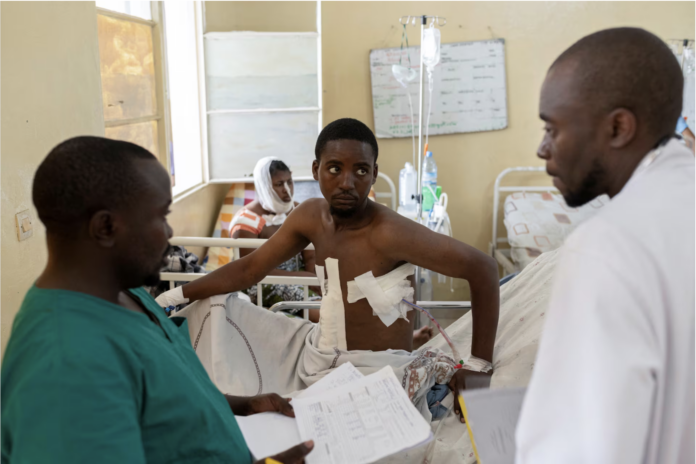GOMA (Reuters) – There were 773 bodies in hospital morgues in and around the eastern Congolese city of Goma as of Jan. 30 following this week’s offensive by Rwanda-backed M23 rebels, the Democratic Republic of Congo’s health ministry said on Saturday.
Thousands more streamed into the city this month as the rebels advanced.
Humanitarian organisations struggled to operate during the days of heavy fighting surrounding Goma’s capture, supporting overwhelmed hospitals and providing relief amid widespread looting of their warehouses and crossfire that also affected their own staff.
Medecins Sans Frontieres (Doctors Without Borders) said on Friday it had only a small stock of medicine left and had stopped assisting people in displacement camps. The World Food Programme said it had evacuated staff and suspended activities.
DISPLACED RETURN HOME
M23 have been intent on showing they can restore order and govern. Power and water, which were cut for days, have been partially restored, while residents were told school would resume and that displaced people would be allowed to return home.
Markets reopened, although food remained scarce, with many stalls empty. One customer said mobile internet was still down.
Three humanitarian sources said people were leaving displacement camps. Corneille Nangaa, head of the political coalition backing the M23, Alliance Fleuve Congo, said people were leaving because roads had reopened, and that their aim was to facilitate their return home “as soon as conditions allow”.
“We are going to ask all these NGOs for their support (with this), but the challenge is to do everything, to move from humanitarian aid to development,” Nangaa said on Friday.
M23 REBEL ADVANCE STALLS
Fighting appeared to have stalled on Saturday after the army pushed back.
Local civil society leader Justin Mulindangabo said Congo’s army had taken back the villages of Mukwija, Shanje, Numbi and Nyamasasa and other localities in Kalehe territory, around halfway between Goma and Bukavu.
Mulindangabo, who lives in Kavumu, a town 35 km (22 miles) north of Bukavu, said residents there were resuming daily life.
Another civil society source said there was no fighting in Kalehe on Saturday morning. A local official said the army had strengthened its position in Kalehe and retaken several villages including Mukwija, though fighting was continuing elsewhere.
Congo’s army did not respond to a request for comment on Saturday.
Burundi, which shares a border with both Rwanda and Congo, has been reinforcing Congolese forces in South Kivu and elsewhere.
On Friday, Burundian President Evariste Ndayishimiye warned he would retaliate against any Rwandan encroachment into his country and “generalisation” of the conflict.
Rwanda’s Foreign Affairs Minister Olivier Nduhungirehe said on Saturday it was Burundi that was seeking to overthrow its government in Kigali.
The latest escalation of the conflict has sparked international criticism of Rwanda and repeated calls for a ceasefire.
Rwanda has long denied supporting M23 and says it is defending itself. Congo denies the allegations and accuses Rwanda of using M23 to pillage valuable minerals.


